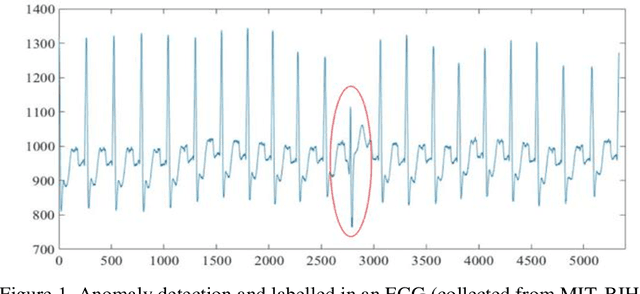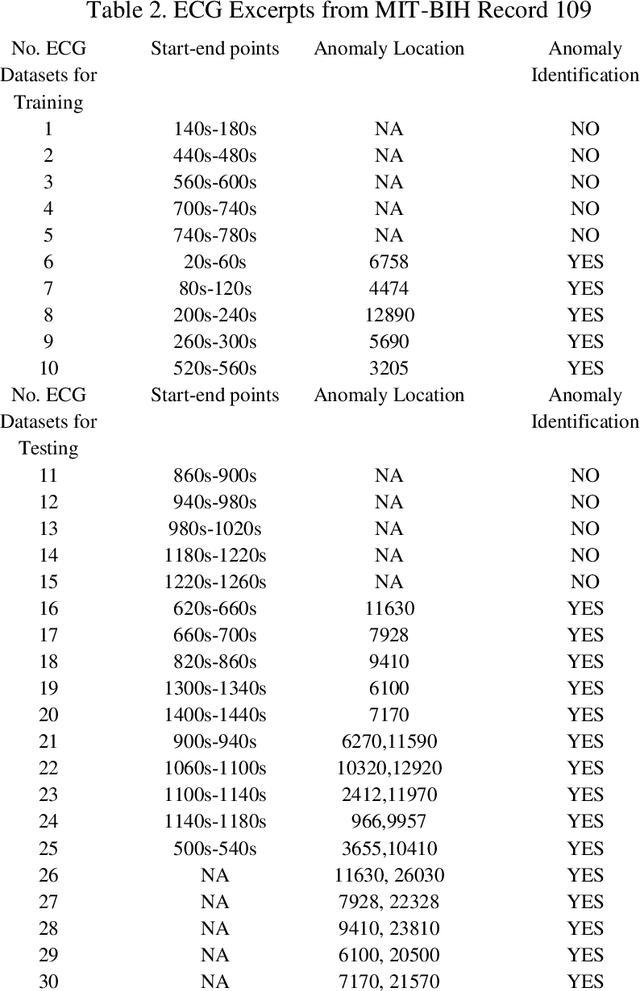A Modified Dynamic Time Warping Approach and Innovative Average Non-Self Match Distance Method for Anomaly Detection in ECG Recordings
Paper and Code
Nov 01, 2021



ECGs objectively reflects the working conditions of the hearts as these signals contain vast physiological and pathological information. In this work, in order to improve the efficiency and accuracy of "best so far" time series analysis-based ECG anomaly detection methods, a novel method, comprising a modified dynamic time warping (MDTW) and an innovative average non-self match distance (ANSD) measure, is proposed for ECG anomaly detection. To evaluate the performance of the proposed method, the proposed method is applied to real ECG data selected from the MIT-BIH heartbeat database. To provide a reference for comparison, two existing anomaly detection methods, namely, brute force discord discovery (BFDD) and adaptive window discord discovery (AWDD), are also applied to the same data. The experimental results show that our proposed method outperforms BFDD and AWD.
 Add to Chrome
Add to Chrome Add to Firefox
Add to Firefox Add to Edge
Add to Edge